Public Comment Period for MFTD Waiver Updates
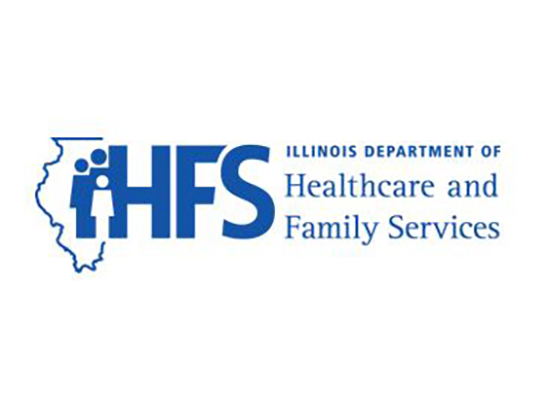
The deadline to share feedback is June 30.
Families have an opportunity to share feedback on proposed updates to the Medicaid Home and Community-Based Services Waiver for Medically Fragile, Technology Dependent (MFTD) Children.
The Illinois Department of Healthcare and Family Services (HFS) is the Medicaid agency responsible for the MFTD waiver. Many families in the Home Care Program have children who receive services through the MFTD waiver.
HFS must renew Illinois’ MFTD waiver every five years. HFS and the Division of Specialized Care for Children (DSCC) have partnered to make several changes as part of this year’s renewal process.
To review the full list of waiver updates, you can:
- See page 2 of the electronic copy of the proposed renewal application.
- Review a hard copy at HFS’ offices at:
- 201 South Grand Ave. E.,
Springfield, IL 62763 - 401 S. Clinton
Chicago, IL 60607
- 201 South Grand Ave. E.,
HFS now seeks public input on these changes. (You can read the public comment notice on the HFS website.)
The deadline to provide feedback is June 30.
You can share your feedback in two ways:
- Via email to HFS.HCBSWaiver@illinois.gov
- Via mail to the Illinois Department of Healthcare and Family Services, Attention: Waiver Operations Management, 201 South Grand Ave. E., 2FL, Springfield, IL 62763
HFS will send your comments to the federal Centers for Medicare and Medicaid Services as part of the waiver approval process.
If you have questions, please contact HFS’s Waiver Operations Management Unit at (217) 524-4148 or (844) 528-8444.
New Support Group and Workshop Series for Home Care Families
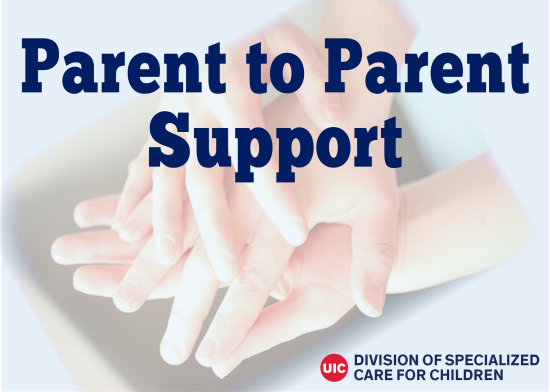
UPDATE: Please note this support group is now open to all families of children enrolled with the Division of Specialized Care for Children. See the latest support group news for more details.
The University of Illinois Chicago’s Division of Specialized Care for Children (DSCC) is partnering with UIC’s Leadership and Education in Neurodevelopmental and related Disabilities Program (IL LEND) to offer a support group for families enrolled in the Home Care Program.
The Home Care Program helps children and adults who require in-home nursing care. DSCC operates the Home Care Program on behalf of the Illinois Department of Healthcare and Family Services.
This support group will provide an online space for parents to access educational workshops and swap concerns, resources and strategies.
There is no cost for families to participate.
The group will meet on the third Wednesday of the month from November through April.
Workshops topics may include:
- Respite care
- Feeding
- Ventilator maintenance/cleaning
- Transportation
- Navigating relationships with Home Care staff
IL LEND would also like to hear families’ ideas for future support groups and workshop topics. You can share your feedback on this brief online form.
The support group schedule is for the following dates from 5:30 to 6:30 p.m.:
- Nov. 17
- Jan. 19
- Feb. 16
- March 16
- April 20
Here are details for the first session:
- WHAT: Virtual support group/workshop series for parents/caregivers of children and adults enrolled in the Home Care Program.
- WHEN: Nov. 17 from 5:30 to 6:30 p.m.
- TOPIC: Navigating the COVID-19 Pandemic (Note, the discussion portion of the support group will include a facilitator for Spanish-speaking families.)
- WHERE: Virtual via Zoom
- REGISTER: Please sign up online in advance. After registering, you will receive a confirmation email containing information about joining the workshop discussion via Zoom.
Tell Us About Your Home Nursing Experience
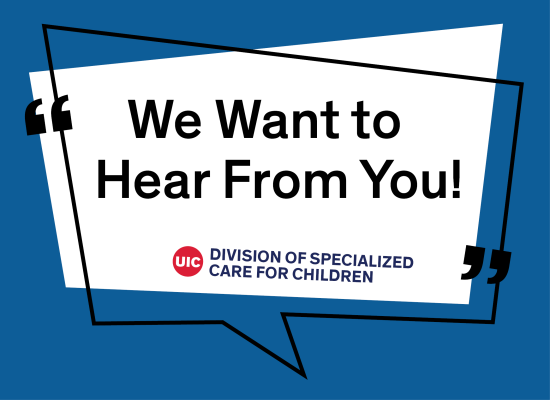
A brief survey for Home Care Program families will help us improve service and support
Attention all families in the Home Care Program! We want to know how well your family’s nursing agency is meeting your needs.
The University of Illinois Chicago’s Division of Specialized Care for Children (DSCC) team has put together a short, 10-question survey for families to complete.
We will not share your individual survey responses with anyone.
There is no requirement to share your name or your child’s/participant’s name. Entering this information is completely optional.
We will group your survey responses with those from other families to better understand how rate increases are affecting nurses working in the home.
Our ultimate goal is to improve the services and support available for DSCC participants with complex medical needs.
Please note this survey is only for families enrolled in the Home Care Program who receive in-home shift nursing services.
You can fill out the survey at https://uic.ca1.qualtrics.com/jfe/form/SV_85Pqs6nSdnHb7ds.
The survey is available in both English and Spanish.
The deadline to complete the survey is Oct. 19.
We appreciate your feedback and partnership!
Family Input Guides State Plan for Children With Medical Complexity
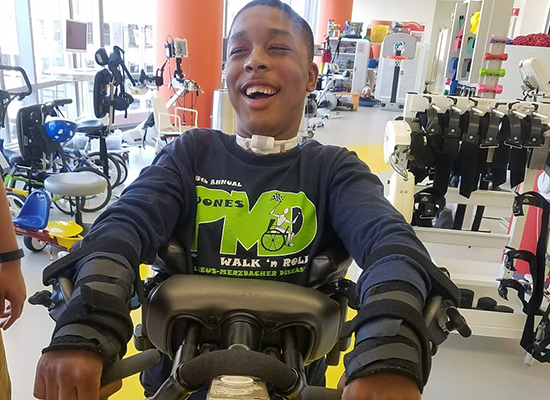
Illinois awaits approval to use FMAP funds for improving care for our Home Care Program participants
Illinois has developed a plan to use increased federal funding to improve support and services for children and youth with complex medical needs.
This plan incorporates valuable feedback from our participants, stakeholders and staff members at the University of Illinois Chicago’s Division of Specialized Care for Children (DSCC).
The extra funds are part of the American Rescue Plan Act of 2021. The act gives Illinois a temporary 10 percent increase in federal funding for home and community-based services (HCBS). This 10 percent increase is called the Federal Medical Assistance Percentage or FMAP.
Illinois must use the FMAP funds to enhance, expand or strengthen HCBS.
HCBS includes the waiver for children who are medically fragile and technology-dependent (MFTD). Therefore, the FMAP can provide extra funds to help support children and youth in the Home Care Program and their caregivers. FMAP improvements will also affect individuals who receive in-home, shift-based nursing as a non-waiver benefit.
In late May, DSCC asked our participant families, staff and community partners for input on how to use the FMAP funds. We also sought feedback on DSCC’s ideas for improving HCBS for Home Care participants.
We shared the input we received with the Illinois Department of Healthcare and Family Services (HFS). We then worked with HFS to develop Illinois’ proposal for using the FMAP funds.
Ideas included in the proposal are:
- Expand consumer direction (the ability for consumers to make choices about the services they receive) to allow unlicensed family caregivers to be paid caregivers. DSCC would then work to develop health and safety monitoring, assist with training and more. This change could provide caregiver relief to a large number of Home Care families.
- Develop a nursing portal where open shifts could be posted by nursing agencies and families. This portal would be visible to home nurses and families. The intent is to try to improve nursing coverage for open shifts across the state.
- Improve training and access to training to help improve the quality of nursing care in the home. This initiative would include developing training that builds on and complements existing training for caregivers in the home.
- Increase the in-home respite nursing rates to match the rates from the 2019 nursing rate increase.
- Increase the child-specific training rates to match the rates from the 2019 nursing rate increase.
HFS submitted Illinois’ proposal to the federal Centers for Medicare and Medicaid Services in July. We are now awaiting its approval and planning for the necessary next steps.
It is important to note that though the FMAP funding increase is temporary, we hope to make many of these changes permanent. We are discussing how to handle any relevant long-term costs with HFS.
We are excited about this opportunity to improve care for our Home Care Program participants.
Thank you to everyone who took the time to share their ideas and feedback with us.
We will continue to share updates on the status of Illinois’ proposal as they become available.
Important Clarification on In-Home Supervisory Visits for Home Care Families
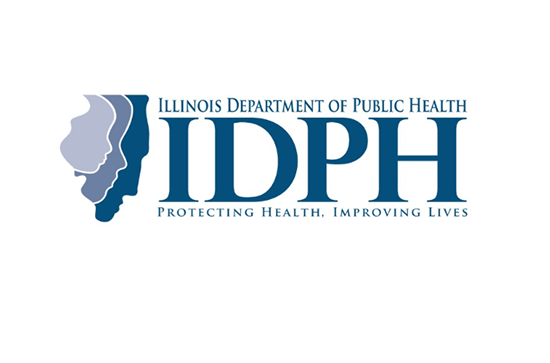
UPDATED: In-home nurse agency supervisory visits are still optional for most Home Care Program families
We have an important clarification to share about the status of home nursing agency supervisory visits.
A previous version of this post stated that home nurse agency supervisory visits must now resume in-person without exceptions for all Home Care Program participants. That information is no longer accurate.
We have received clarification from the Illinois Department of Public Health (IDPH). The department’s June 24 notice about required in-person supervisory visits only applies to home health aides (CNAs) providing care in the home. It does not apply to all nurses working in the home.
At this time, in-person supervisory visits are only required when:
- A CNA is providing care in the home.
- The parent/guardian is a licensed nurse and providing care as a paid caregiver in the home.
If your home nursing care does not fall in these categories, in-person supervisory visits are not required and remain optional. (Please note that DSCC still encourages nursing agencies to perform in-home supervisory visits when possible to ensure the health and safety of our participants.)
We apologize for the confusion!
The emergency amendments that suspended in-person supervisory visits during the pandemic are still in place.
If you have questions or additional concerns about the status of in-home supervisory visits, please contact your DSCC Care Coordinator.
Our DSCC Team will continue to prioritize the health of your child and family and work with our state partners to provide guidance and support.
Once again, we regret any confusion and are happy to help answer any questions and address your concerns.
Thank you for your understanding.


